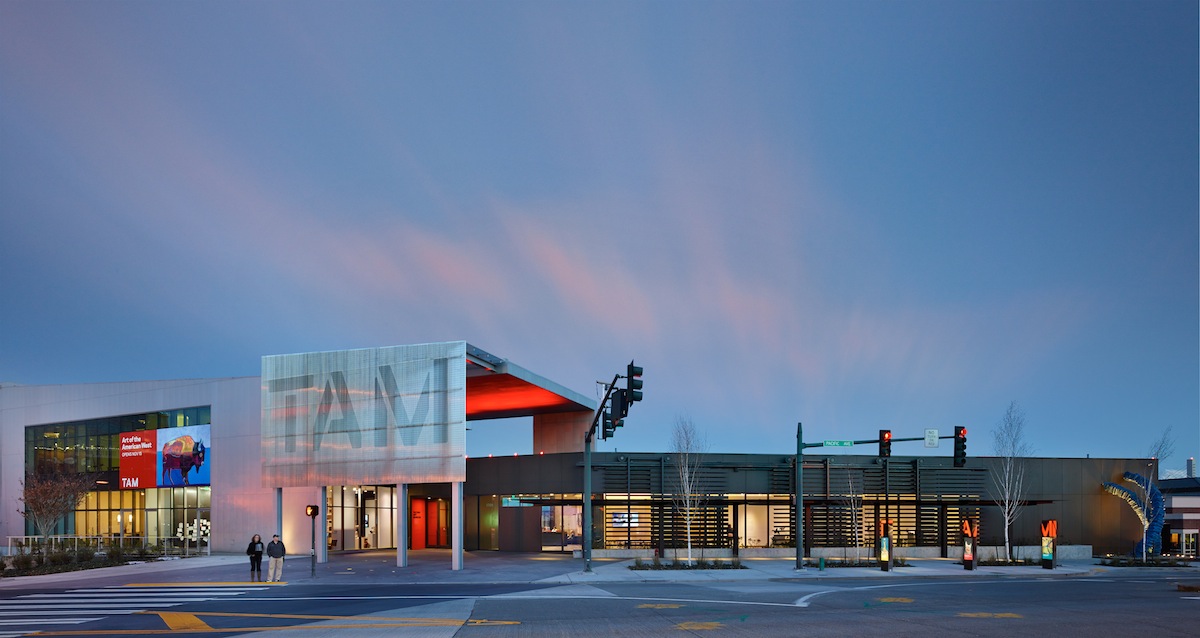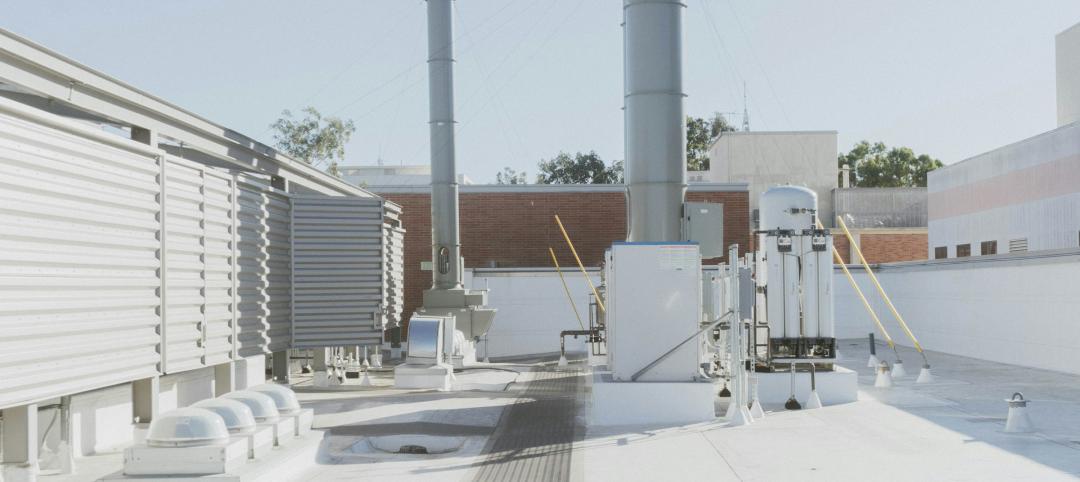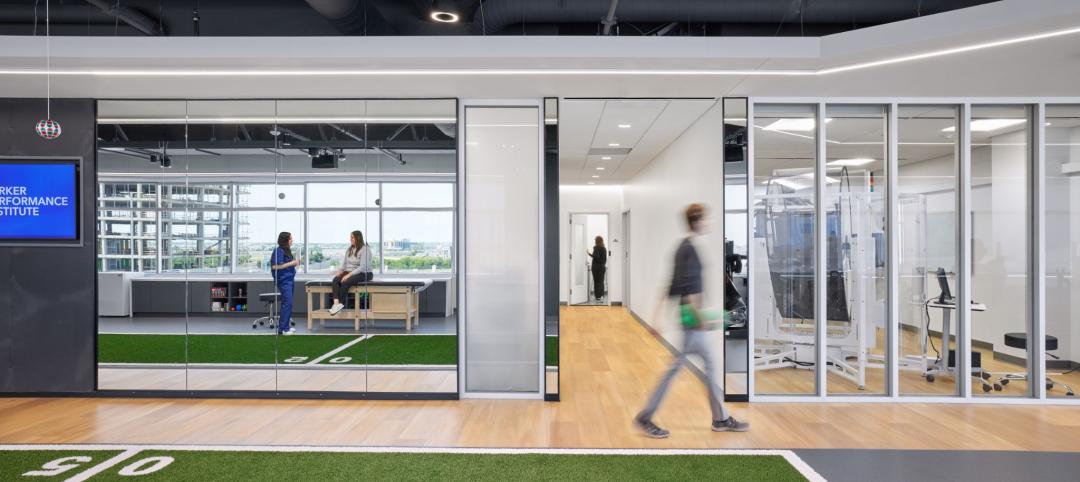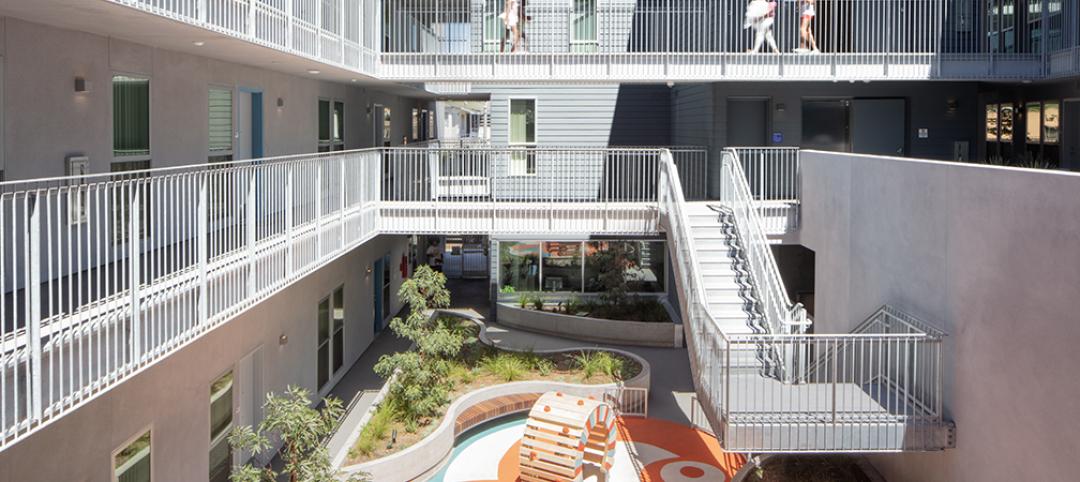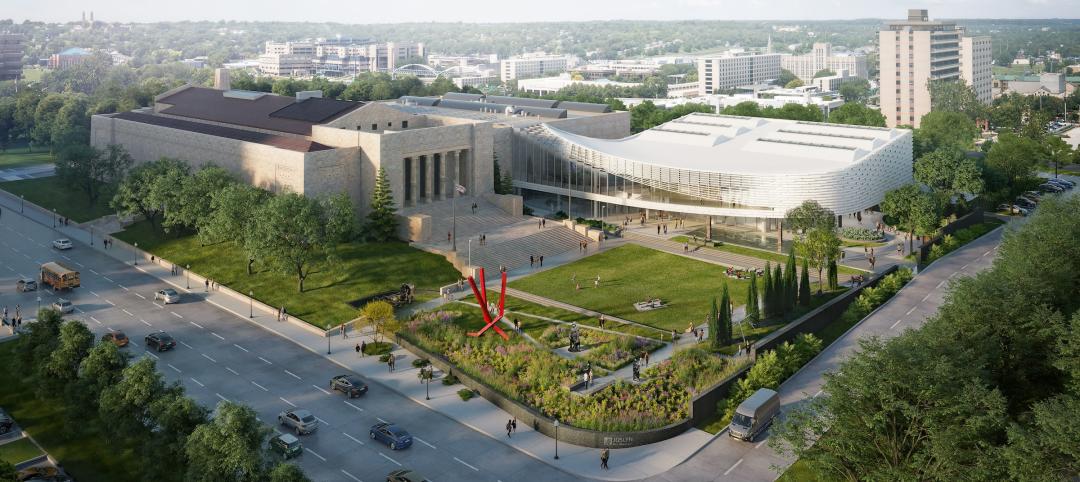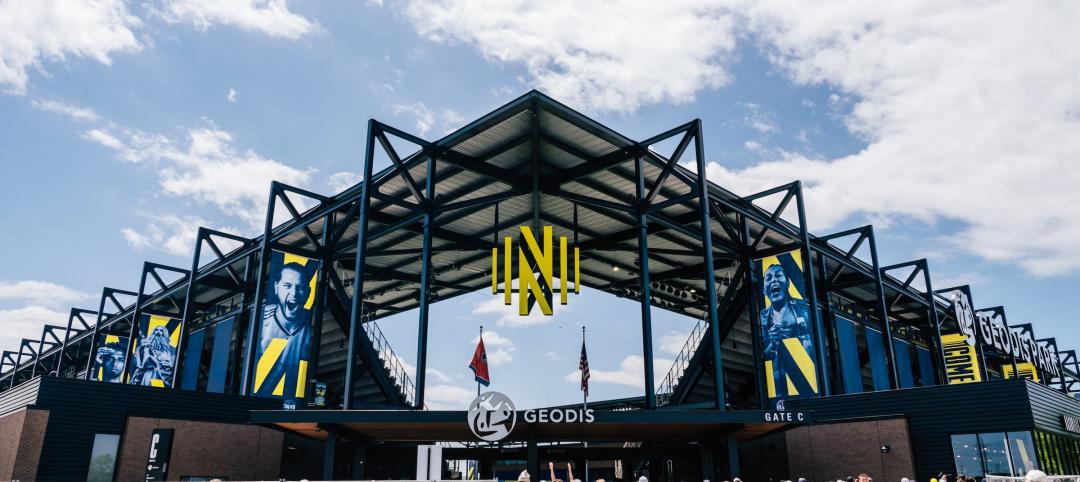The new Haub Family Galleries at the Tacoma Art Museum (TAM), designed by Seattle-based Olson Kundig Architects, opened to the public last week. The galleries, together with a new entry plaza, mark the firm's first museum project and expand the museum’s existing Antoine Predock-designed structure by 16,000 sf.
Bringing several new iconic features to the museum’s interior and exterior, the Haub Family Galleries double the museum’s gallery space and will house the newly acquired Haub Family Collection of Western American Art, consisting of nearly 300 works. The Haub Family Galleries reflect the surrounding environment through the creative use of industrial elements, an earthy palette of materials, and mechanical features that allows the building to respond to its environment while helping to engage visitors.
The design inspiration for the new building comes directly from the rich historical context of Tacoma and the surrounding landscape—a city and region shaped through its interwoven connections to shipping, logging and railroading. That legacy has resulted in a contemporary building that is respectful of place, yet of its time.
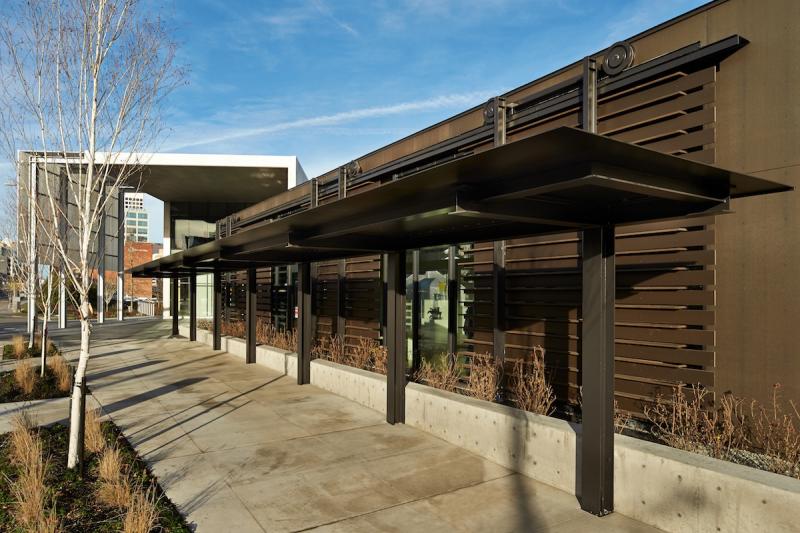 Photo: Benjamin Benschneider
Photo: Benjamin Benschneider
“Architecturally, the challenges became opportunities,” said Kundig. “It was an opportunity to create new venues to view art. The design takes into account Tacoma’s diverse and historic neighborhoods. The West doesn’t stop in Wyoming. Tacoma, the ‘City of Destiny,’ was the western terminus of the Northern Pacific Railroad, and played an important part of the larger story of the West.”
The most striking feature of the new Haub Family Galleries building is a 34-foot-tall entry canopy that soars over the existing museum and expansion, adjoining the two spaces together. The canopy transforms the outdoor plaza into a public gathering space and is made using a combination of aluminum grating and stainless steel panels, which were reused from selectively demolished portions of the existing building.
Further enhancing the museum’s visual impact along Pacific Avenue, the Haub Family Galleries also feature sliding sun screens made of Richlite, a sustainable material made locally in Tacoma from recycled paper, organic fiber and phenolic resin. The roughly 16-foot-tall, 17-foot-tall screens, operated by a hand wheel, roll like railroad box car doors across the façade and interlace with a set of fixed screens. The screens pair form and function by referencing Tacoma’s industrial history while allowing the museum to control the amount of natural light in the space.
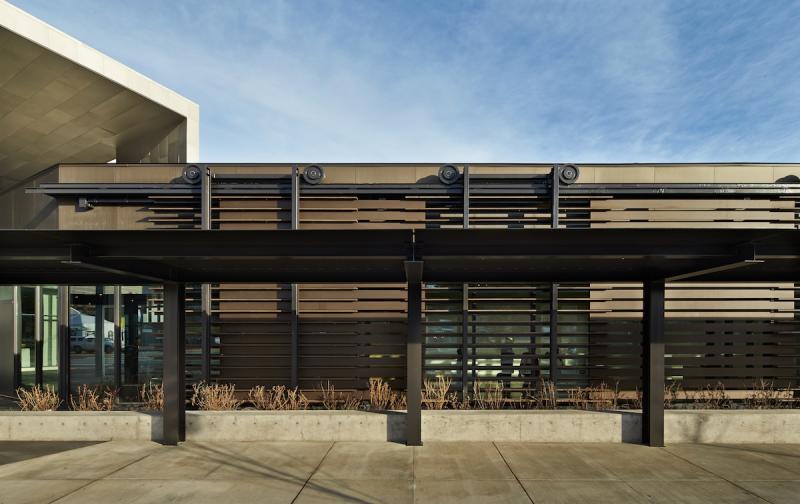 Photo: Benjamin Benschneider
Photo: Benjamin Benschneider
The overall program for the TAM expansion includes 7,000 sf of new gallery space dedicated to the Haub Family Collection, 3,500 sf of new back-of-house service and mechanical space, and 3,000 sf of interior renovations in the existing facility for lobby, bookstore, café, and restrooms. The newly revised lobby and entry sequence encourages movement into and through the museum. Sustainable features include reduced water usage with adaptive landscape vegetation and low flow water fixtures, high efficiency mechanical and LED lighting systems, and the incorporation of reclaimed materials from the existing site.
The Olson Kundig Architects design team for the Haub Family Galleries was led by Design Principal Tom Kundig and also includes: Kirsten R. Murray, Principal; Kevin Kudo-King, Principal; Jim Friesz, Project Manager; Thomas Brown, Staff Charlie Fairchild, Interior Design; Naomi Mason, Interior Project Manager; Alan Maskin, Design Principal for the Interactive Art Space.
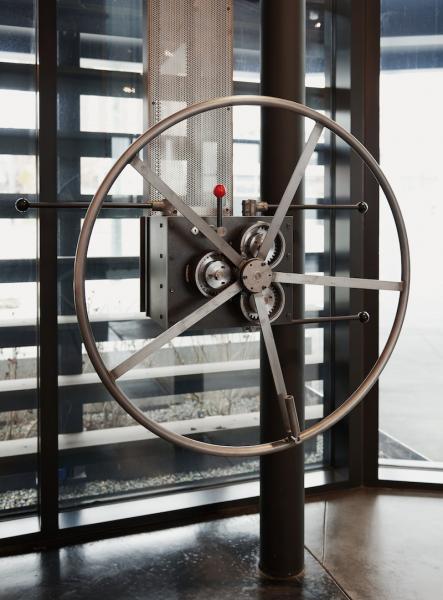 Photo: Kevin Scott
Photo: Kevin Scott
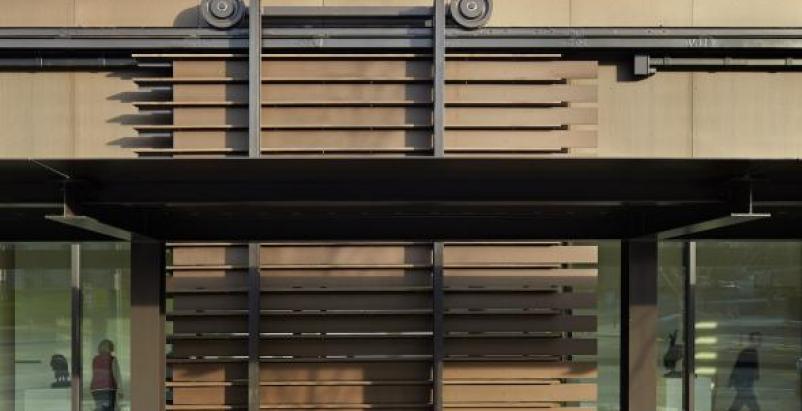 Photo: Benjamin Benschneider
Photo: Benjamin Benschneider
 Photo: Benjamin Benschneider
Photo: Benjamin Benschneider
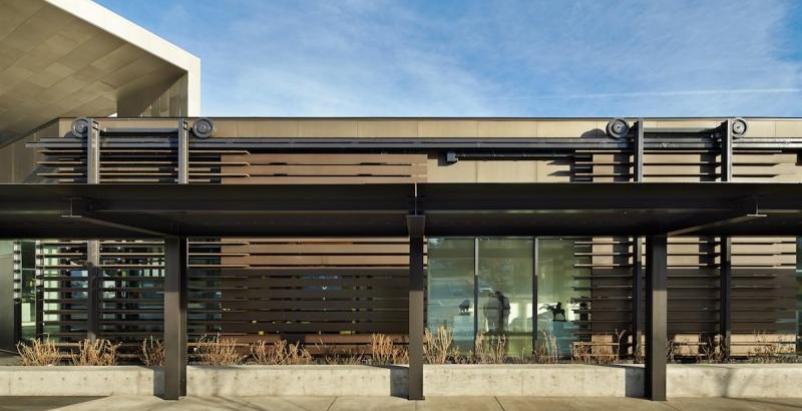 Photo: Benjamin Benschneider
Photo: Benjamin Benschneider
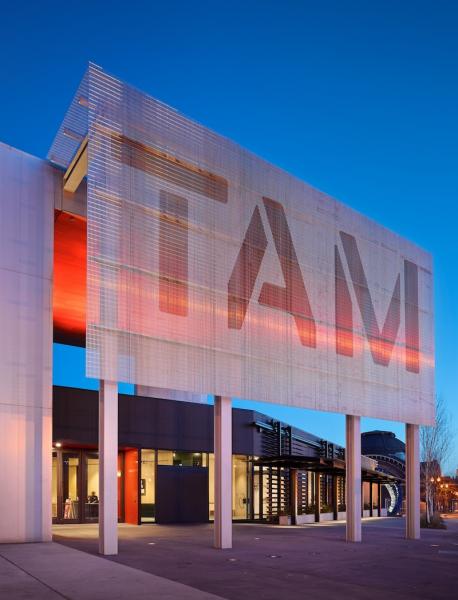 Photo: Benjamin Benschneider
Photo: Benjamin Benschneider
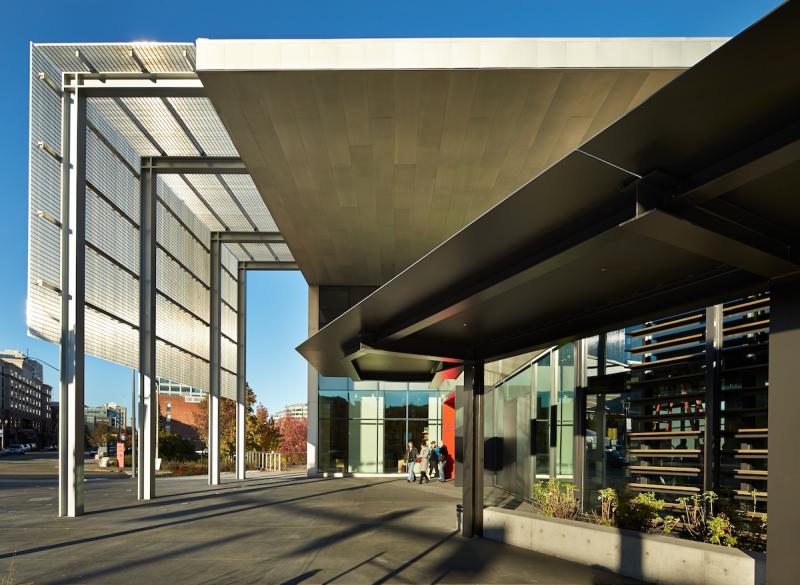 Photo: Benjamin Benschneider
Photo: Benjamin Benschneider
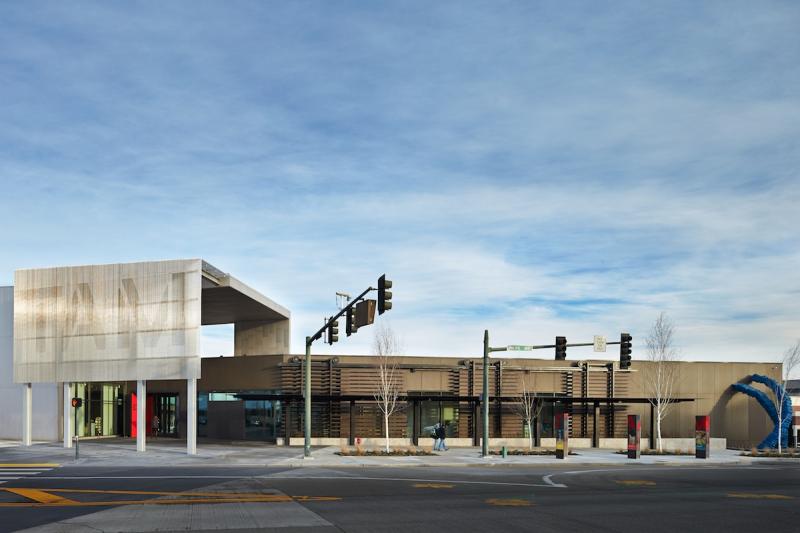 Photo: Benjamin Benschneider
Photo: Benjamin Benschneider
Related Stories
Codes and Standards | Mar 15, 2024
Technical brief addresses the impact of construction-generated moisture on commercial roofing systems
A new technical brief from SPRI, the trade association representing the manufacturers of single-ply roofing systems and related component materials, addresses construction-generated moisture and its impact on commercial roofing systems.
Sports and Recreational Facilities | Mar 14, 2024
First-of-its-kind sports and rehabilitation clinic combines training gym and healing spa
Parker Performance Institute in Frisco, Texas, is billed as a first-of-its-kind sports and rehabilitation clinic where students, specialized clinicians, and chiropractic professionals apply neuroscience to physical rehabilitation.
Market Data | Mar 14, 2024
Download BD+C's March 2024 Market Intelligence Report
U.S. construction spending on buildings-related work rose 1.4% in January, but project teams continue to face headwinds related to inflation, interest rates, and supply chain issues, according to Building Design+Construction's March 2024 Market Intelligence Report (free PDF download).
Apartments | Mar 13, 2024
A landscaped canyon runs through this luxury apartment development in Denver
Set to open in April, One River North is a 16-story, 187-unit luxury apartment building with private, open-air terraces located in Denver’s RiNo arts district. Biophilic design plays a central role throughout the building, allowing residents to connect with nature and providing a distinctive living experience.
Sustainability | Mar 13, 2024
Trends to watch shaping the future of ESG
Gensler’s Climate Action & Sustainability Services Leaders Anthony Brower, Juliette Morgan, and Kirsten Ritchie discuss trends shaping the future of environmental, social, and governance (ESG).
Affordable Housing | Mar 12, 2024
An all-electric affordable housing project in Southern California offers 48 apartments plus community spaces
In Santa Monica, Calif., Brunson Terrace is an all-electric, 100% affordable housing project that’s over eight times more energy efficient than similar buildings, according to architect Brooks + Scarpa. Located across the street from Santa Monica College, the net zero building has been certified LEED Platinum.
Museums | Mar 11, 2024
Nebraska’s Joslyn Art Museum to reopen this summer with new Snøhetta-designed pavilion
In Omaha, Neb., the Joslyn Art Museum, which displays art from ancient times to the present, has announced it will reopen on September 10, following the completion of its new 42,000-sf Rhonda & Howard Hawks Pavilion. Designed in collaboration with Snøhetta and Alley Poyner Macchietto Architecture, the Hawks Pavilion is part of a museum overhaul that will expand the gallery space by more than 40%.
Affordable Housing | Mar 11, 2024
Los Angeles’s streamlined approval policies leading to boom in affordable housing plans
Since December 2022, Los Angeles’s planning department has received plans for more than 13,770 affordable units. The number of units put in the approval pipeline in roughly one year is just below the total number of affordable units approved in Los Angeles in 2020, 2021, and 2022 combined.
BIM and Information Technology | Mar 11, 2024
BIM at LOD400: Why Level of Development 400 matters for design and virtual construction
As construction projects grow more complex, producing a building information model at Level of Development 400 (LOD400) can accelerate schedules, increase savings, and reduce risk, writes Stephen E. Blumenbaum, PE, SE, Walter P Moore's Director of Construction Engineering.
AEC Tech | Mar 9, 2024
9 steps for implementing digital transformation in your AEC business
Regardless of a businesses size and type, digital solutions like workflow automation software, AI-based analytics, and integrations can significantly enhance efficiency, productivity, and competitiveness.


